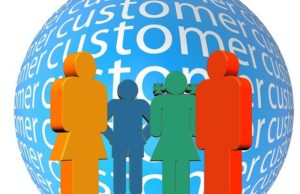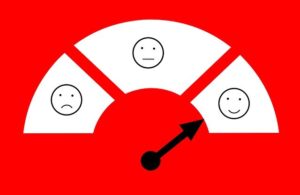What is CRM? Customer Relationship Management (CRM) is an essential tool for any business, big or small. With the combination of practices, strategies, and technologies, companies use a CRM to manage and analyze customer interactions and data throughout a customer’s lifecycle. CRMs help improve customer service relationships and assist in customer retention, along with helping to drive sales growth.
How CRM Works
How a CRM works, is it allows businesses to put all their customer’s data in a central location, so the company stays organized. By being customer-centric, companies can keep track of their customer’s data, and do some automation, like weekly or monthly e-newsletters.
Customer Centric
For your business to fully succeed, you must be customer-centric, meaning it’s not just about offering excellent customer service. Customer-centric also means offering a great experience from the awareness stage, through the purchasing process, and finally through the post-purchase process. It’s a strategy based on putting your customer first, and at the core of your business.
Customers Data – All in One Location
CRM software combines all sales, marketing, and customer service information into one central database or location.
With 92% of businesses collecting data on prospects and customers, having access to all the data in a single database means fewer storage spaces within your organization. Thus, helping the company to stay organized and achieving customer-centricity.
Information Collected in a CRM
Information that is collected is really up to the business’s discretion; but customer information includes, but is not limited to, names, phone numbers, addresses, email addresses, and last contact made. Most of the CRM software also records what you or your team has discussed, what the next follow update is, and even the status of an open item.
This information can then be used to manage, measure, and keep track of marketing, sales, and customer service activities as they relate to the customer. Overall, it builds higher customer loyalty and better customer experience.
Automation
A CRM strategy focuses primarily on the customer-facing processes and makes them better in terms of meeting the needs of the customer.
Usually, a person has filled out a form online and has provided you with their contact information.
Once the lead is in the system, the software will then take it through to the sales process. It’s the CRM system that will remind the sales person to call at an agreed upon time, for example. Each time you interact with the prospect, you will record it into the CRM system. The same applies if someone else ends up talking to the opportunity.
Create a CRM Strategy
A CRM strategy is a company’s plan to use CRM software to help grow sales and improve customer service. It incorporates an overall business strategy with input from sales, marketing, and customer service, identifying all potential touch points that occur during the customer journey.
We are going to share with you some steps to creating a CRM Strategy.
- Create your business strategy by understanding your business goals
- Map out your customer’s journey
- Establish a sales process
- Define your team’s goals
- Break down the CRM components by defining contacts, leads, prospects, and opportunities
Conclusion
A CRM system can make all the difference in whether or not you gain a new customer or retain an existing one. Customers who feel valued are happy customers, and satisfied customers mean repeat business, oh, and did we mention improved bottom lines.
Be sure to look out for our next blog when we break down the CRM strategy in more detail!
We at ReachOut Business Solutions want to make sure that you have the right CRM for your business. We treat all our clients like family and not like robots here. We will even share the latest news and blogs that pertain to your business. Be sure to like and follow us on Twitter, LinkedIn, and Facebook so that you can stay up-to-date. Feel free to email us if you have any questions or are ready to set up your consultation.





